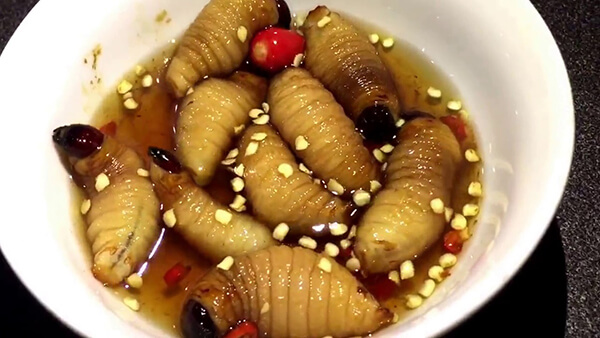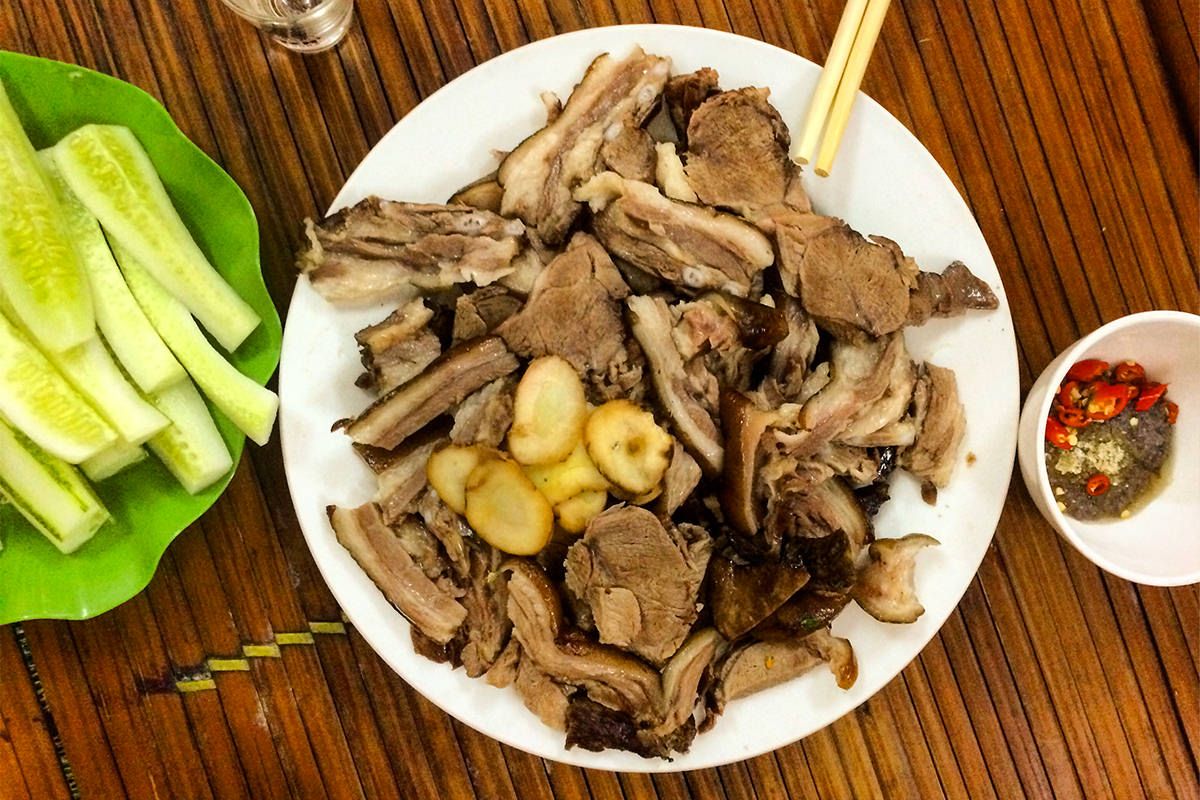Vietnamese cuisine is known for its unique flavors and diverse ingredients. From savory street food to exquisite dishes served in high-end restaurants, Vietnamese food has something for everyone. However, for the more adventurous eaters out there, Vietnam also offers some truly weird and bizarre foods that are not for the faint of heart. In this article, we will explore ten of these unusual dishes and give you a glimpse into the fascinating food culture of Vietnam.
Fascinating Food Culture in Vietnam
Vietnam’s food culture is deeply rooted in its history and geography. With its long coastline, lush jungles, and fertile deltas, Vietnam has access to an abundance of seafood, fruits, vegetables, and herbs. The country’s cuisine is influenced by Chinese, French, and Indian cooking styles but has developed a distinct identity over time.
Food plays a central role in Vietnamese culture, and meals are often shared among family and friends. The traditional Vietnamese meal consists of rice, meat or fish, vegetables, and soup. Vietnamese people take great pride in their food, and many dishes have a special meaning or symbolism attached to them.
1 – Coconut Worms (Đuông dừa)

Coconut worms are a delicacy in some parts of Vietnam and are considered a protein-rich snack. These creepy crawlers are actually the larvae of a species of beetle that infests coconut trees. The worms are harvested by cracking open the coconuts, and they are usually eaten raw or lightly grilled with spices.
While the thought of eating worms may be off-putting to some, coconut worms are said to have a nutty flavor and a crunchy texture that makes them a popular snack.
2 – Balut (Hột vịn lộn)

Balut is a fertilized duck egg that has been allowed to develop for several weeks before being boiled and eaten. The embryo inside the shell is partially developed and has a beak, feathers, and even bones.
Balut is a popular street food in Vietnam and is often served with salt, pepper, and lime juice. The dish is said to have a savory flavor, but the texture can be off-putting to some due to the presence of bones and other bits of the embryo.
3 – Blood Pudding (Lòng lợn tiết canh)

Blood pudding is a type of sausage made from pig’s blood, rice, and spices. The mixture is steamed or boiled until it solidifies and is then sliced and served as a snack or as part of a larger meal.

The texture of blood pudding can be described as chewy, and the flavor is quite strong and salty. While it may sound unappetizing to some, blood pudding is a popular snack in many parts of Vietnam.
4 – Rat Meat (thịt chuột)

Rat meat may not be on everyone’s list of must-try foods, but it is a delicacy in some parts of Vietnam. Rats are often caught in the wild and then cooked whole or in various dishes such as stir-fries, stews, and curries.
While some may find the idea of eating rat meat repulsive, it is said to have a sweet and delicate flavor that pairs well with strong spices and herbs.
5 – Stewed Horse Meat Offals

Stewed horse meat and offals are a traditional dish in Northern Vietnam and are often served at special occasions such as weddings and festivals. The dish consists of tender pieces of horse meat and organs such as liver, kidney, and heart, which are stewed with lemongrass, ginger, and other herbs.
While it may sound strange to some, stewed horse meat and offals are considered a delicacy in Vietnam and are said to have a rich and savory flavor.
6 – Nậm pịa

Nậm pịa is a specialty dish of the Thai ethnic minority group living in the mountainous regions of Northern Vietnam. It is made by wrapping minced pork, glass noodles, and mushrooms in banana leaves and steaming until cooked.
The dish is often served with a spicy dipping sauce and is known for its unique texture, which is a combination of chewy and crunchy.
7 – Fermented Shrimp Paste (Mắm tôm)

Fermented shrimp paste, or mắm tôm in Vietnamese, is a pungent condiment used in many dishes in Vietnam. It is made by mixing salt, shrimp, and rice bran and allowing the mixture to ferment for several months.
The resulting paste has a strong smell and taste and is often used as a dipping sauce for vegetables or added to soups and stews for extra flavor.
8 – Jumping Fish Salad (Gỏi cá)

Jumping fish salad, or cá nướng trui in Vietnamese, is a dish that involves grilling live fish until they are partially cooked and then slicing them into thin pieces. The fish slices are then mixed with herbs, spices, peanuts, and other ingredients to make a flavorful salad.
The name “jumping fish” comes from the fact that the live fish often jump out of the grill during cooking due to their muscles contracting from the heat.
9 – Clam Worm Dishes ( Chả Rươi)

Clam worms, or sandworms, are found in the sandy coastal waters of Vietnam and are often used in local cuisine. They can be grilled, stir-fried, or added to soups and stews for extra flavor and nutrition.
One popular dish made with clam worms is bún mắm, a soup made with fermented fish paste and a variety of seafood including clams, shrimp, and squid.
10 – Dog meat

In Vietnam, dog meat is a traditional dish that has been consumed for centuries. Despite its popularity in some regions, it is also a controversial and divisive topic due to ethical and cultural concerns.
Dog meat is usually prepared by boiling or grilling the meat and serving it with herbs, spices, and vegetables. It is often eaten with rice or noodles and is believed to have medicinal properties and health benefits according to some practitioners of traditional medicine.
However, the consumption of dog meat has been widely criticized by animal rights activists and many people around the world, who view it as inhumane and unethical. In recent years, there have been efforts in Vietnam to discourage the consumption of dog meat and to promote alternative sources of protein.
For many foreigners visiting Vietnam, the idea of eating dog meat can be shocking and repulsive. However, it is important to understand the cultural context in which the dish is consumed and to respect local customs and traditions. Ultimately, the decision to try dog meat or not is a personal one, and visitors to Vietnam should be aware of the controversy surrounding this dish before making a decision.
EXOTIC Vietnamese food tour! SUPER RARE street food of Hanoi Vietnam
Conclusion
Vietnamese cuisine is full of surprises, and these ten weird foods are just a small sample of the unusual dishes you can find in this fascinating country. While some of these foods may seem strange or even repulsive to outsiders, they are an important part of Vietnam’s food culture and offer a glimpse into the country’s history and geography.
Whether you’re a daring foodie or just looking to try something new, Vietnam’s weird foods are definitely worth exploring. So next time you find yourself in this Southeast Asian gem, be sure to give one of these bizarre dishes a try!




















